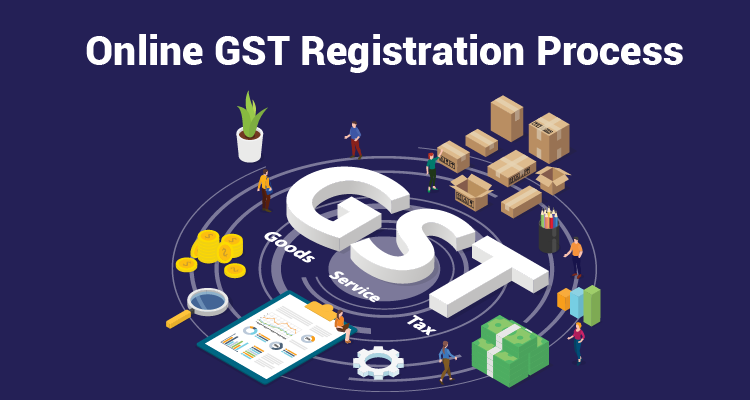Maximize Your Savings with the Best GST Registration Services in Singapore
Maximize Your Savings with the Best GST Registration Services in Singapore
Blog Article
Throughout: The Ultimate Roadmap to GST Enrollment for Services Seeking Financial Stability
Navigating the complexities of Item and Provider Tax (GST) enrollment is an essential action for businesses pursuing economic stability. From understanding the essential principles of GST to following post-registration standards, the process can seem daunting in the beginning glimpse. Nevertheless, breaking down the roadmap right into convenient steps can simplify the enrollment trip for businesses wanting to enhance their economic standing. Allow's explore the essential parts that comprise this ultimate roadmap and find just how each stage adds to laying a solid structure for monetary success.
Recognizing GST Basics
Diving right into the essential concepts of Goods and Services Tax (GST) is vital for getting a detailed understanding of its implications on organizations and the economic climate. Input Tax Obligation Credit History (ITC) is a substantial function of GST, allowing organizations to declare credit scores for tax obligations paid on inputs, minimizing the overall tax obligation problem. Understanding the essentials of GST is critical for organizations to comply with tax obligation policies, handle their finances efficiently, and contribute to the nation's financial development by getting involved in a transparent tax obligation system.
Qualification Standards for Enrollment
To register for GST, businesses have to meet certain qualification standards established by the government. The key qualification requirement is that any organization associated with the supply of items or solutions with a yearly accumulation turn over above the threshold limitation set by the authorities need to register for GST. Since the current regulations, the threshold limit for GST registration is an annual accumulation turn over of 40 lakhs for businesses running within a state, with the exception of special classification states where the limit is 20 lakhs. Additionally, certain organizations are called for to sign up for GST irrespective of their turnover, such as interstate suppliers, casual taxed persons, and organizations reliant pay tax under the reverse cost system. It is essential for companies to thoroughly analyze their turn over and transaction types to establish their GST enrollment responsibilities accurately. Failure to register for GST when eligible can lead to charges and legal effects, making it vital for companies to follow the specified eligibility criteria.
Documents Required for Enrollment
Having met the qualification standards for GST enrollment, companies must currently ensure they have the requisite records in location to continue with the registration procedure effectively. The files needed for GST registration commonly include evidence of service constitution, such as partnership deed, registration certification, or unification certificate for different types of businesses. In addition, services require to provide papers establishing the major place of organization, such as a rental arrangement or electrical energy bill.
Step-by-Step Enrollment Process
Starting the GST enrollment process entails a collection of check this structured actions to make sure a smooth and compliant enrollment for services. The primary step is to visit the GST site and fill out the registration kind with precise details of the organization entity. Following this, the applicant obtains a Short-lived Referral Number (TRN) which is used to resume the application procedure if it's not finished in one go.
Next, all needed records as per the checklist supplied by the GST portal need to be uploaded. These documents commonly consist of proof of business identification, address and enrollment evidence of promoters, monetary declarations, and service entity's PAN card.

Post-Registration Compliance Standards

Verdict
In final thought, organizations looking for monetary stability should recognize the basics of GST, satisfy eligibility criteria, collect required files, follow the detailed registration procedure, and abide by post-registration standards - Best GST registration services in Singapore. By adhering to these actions, organizations can ensure compliance with tax obligation guidelines and maintain economic security in the lengthy run
Furthermore, certain businesses are called for to register for GST regardless of their turnover, such as interstate suppliers, informal taxable persons, and organizations liable to pay tax obligation under the reverse fee mechanism.Having actually satisfied the qualification standards for GST enrollment, services must now guarantee they have the requisite files in area to proceed with the enrollment procedure effectively. The documents like this needed for GST registration generally include evidence of business constitution, such as collaboration deed, enrollment certificate, or incorporation certificate for different types of organizations. In addition, services need to supply documents establishing the major location of business, such as a rental contract or electricity expense.Starting the GST registration process includes a collection of structured steps to make certain a smooth and compliant registration for services.
Report this page